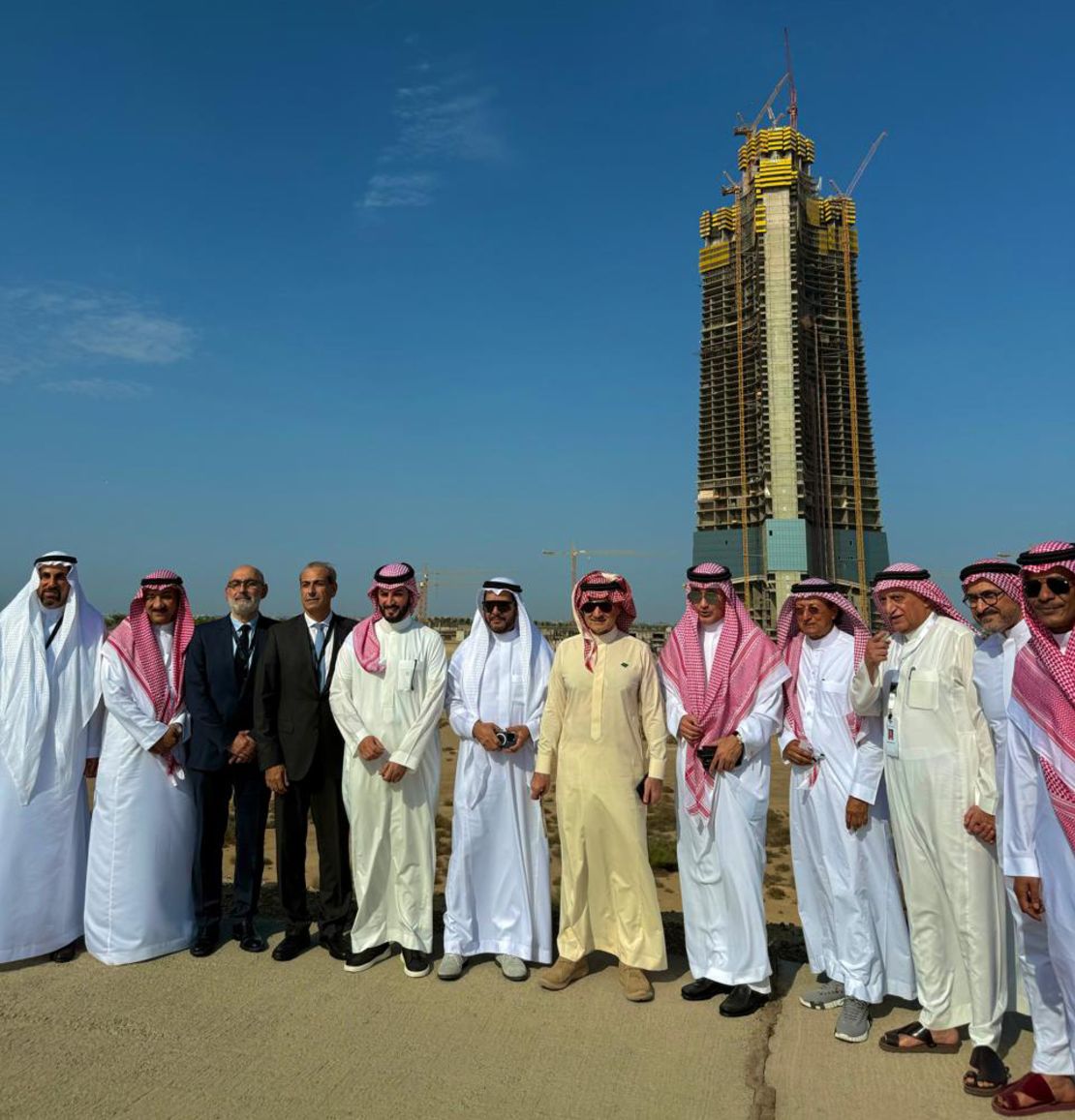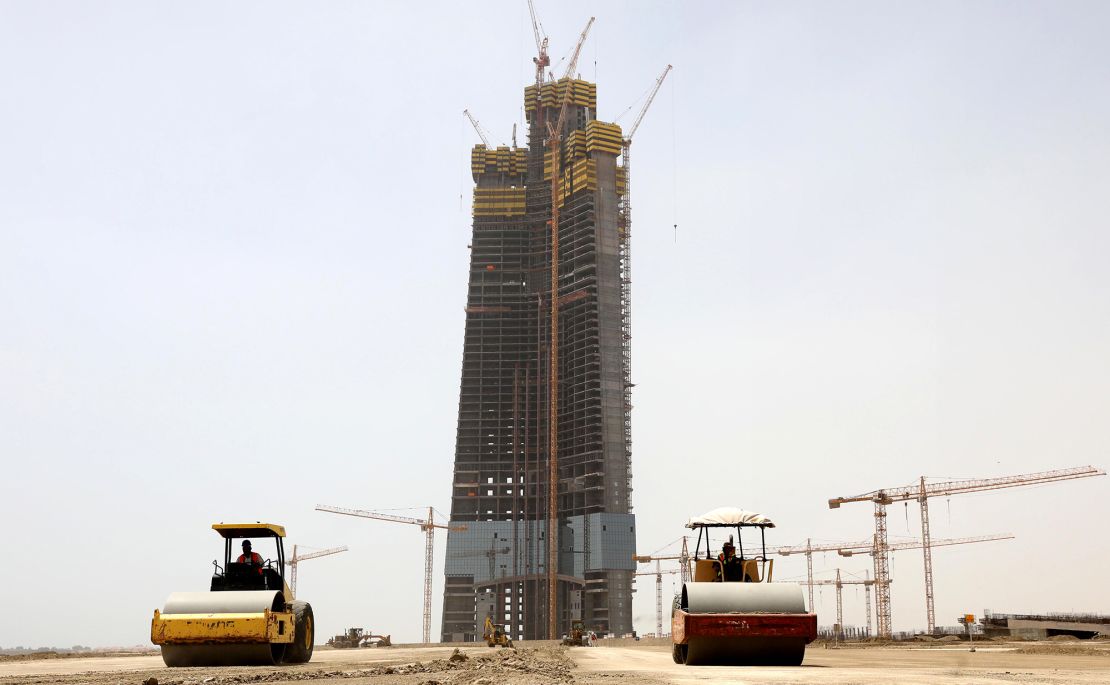Construction of Saudi Arabia’s kilometer-high Jeddah Tower, which will become the world’s tallest skyscraper upon completion, has resumed almost seven years after work ground to a halt amid a kingdom-wide anti-corruption purge.
At a ceremony held on the site Wednesday, the development consortium behind the project, Jeddah Economic Company (JEC), announced that the tower is now scheduled to finish in 2028.
The 1,000-meter-tall (3,280-foot) skyscraper was around a third complete when, in 2017, several key figures — including the chairmen of both the main contractor and a conglomerate that co-financed the project — were detained?in Crown Prince Mohammed bin Salman’s anti-graft campaign,?which saw hundreds questioned on accusations of corruption.
Work continued after the arrests, though it came to a standstill in early 2018. In January of that year, with growing concern about the purge’s economic fallout, JEC told CNN that construction would still go ahead, but a years-long hiatus ensued. Disruption caused by the Covid-19 pandemic also reportedly delayed plans to resume work.
This week’s ceremony was attended by one of the previously detained officials, Saudi Prince Alwaleed bin Talal, who is the chairman of Kingdom Holding Company, one the project’s main backers. Alwaleed, the Crown Prince’s cousin, was freed nearly three months after his arrest, though it is not known why and under what circumstances he was released.
Following yesterday’s ceremony, Alwaleed posted a video to X showing a digital rendering of the gleaming tower with the caption: “We’re back.”

Another key figure embroiled in the anti-corruption drive was Bakr bin Laden, chairman of?the skyscraper’s main contractor, Saudi Binladen Group. The construction mogul, who is the half-brother of Osama bin Laden, was reportedly released in 2021, three years after his arrest. His family’s firm, which also owns a stake in the Jeddah Tower project, has been rehired to complete the construction work.
According to an announcement published via the Saudi stock exchange, Saudi Binladen Group’s new contract is worth 7.2 billion riyal ($1.9 billion), of which around 1.1 billion riyal ($290 million) has been already paid for completed work. At present, 63 of the tower’s 157 stories have been built.
While Wednesday’s ceremony marked the first official announcement that construction is resuming, satellite images provided to Newsweek by US firm Maxar Technologies two months ago suggested that work was already taking place on the site. In September 2023, Dubai-based magazine MEED reported that JEC had invited contractors to bid for the project, though the developer declined to confirm plans to CNN at the time.
Designed for extremes
Formerly known as Kingdom Tower, the skyscraper broke ground in 2013 and was initially expected to be completed by 2020. It will stand more than 500 feet above Dubai’s Burj Khalifa, currently the world’s tallest building.
Overlooking the Red Sea in Saudi Arabia’s commercial capital, Jeddah, the skyscraper is expected to contain office, retail and residential space. Original plans, first unveiled in 2011, included a hotel, shopping mall and the world’s highest observation deck.
The Kingdom Holding Company did not respond to CNN’s request for confirmation that the design and building specifications had remained unchanged throughout the hiatus.
The tower was designed by US architect Adrian Smith, who used the building’s “three-petal” footprint?and tapered aerodynamic shape to overcome the huge technical challenges of building at such heights. The architect’s Chicago-based practice, Adrian Smith + Gordon Gill, has said the tower’s shape “evokes a bundle of leaves shooting up from the ground.”

Plans also include 59 different elevators, in what the firm called “one of the world’s most sophisticated elevator systems.”
Adrian Smith + Gordon Gill did not respond to CNN’s request for comment on the resumption of work.
Jeddah Tower will be the crown jewel of a wider 57-million-square-foot, $20-billion development dubbed Jeddah Economic City. Speaking to CNN in 2018, JEC’s then chief development officer Hisham Jomah said the project was “changing the mindset” of Jeddah, which has traditionally acted as a gateway to the holy cities of Medina and Mecca.
“Before (the tower) was here, this was not considered a place that people would live,” said Jomah, who has since passed away. “We are creating an independent city… so that you don’t have to leave here.”

